Rupee-dollar value can be stable with right economic direction: Ishaq Dar
- Former finance minister, in interview with Aaj News, says letting the dollar 'free' has been the 'mother of all evils'
Former finance minister Ishaq Dar said on Wednesday the exchange-rate will improve once Pakistan's economy is steered in the right direction, going as far as saying that it could even come down to Rs160 against the US dollar in a few months when "fiscal and monetary policies are fixed".
Dar's remarks came during the Aaj News show, 'Faisla Aap Ka with Asma Shirazi', where he said rupee's historic fall has been due to the previous government's "incompetence".
"This is their incompetence," he said when asked by Shirazi if the rupee value could improve now that the Pakistan Muslim League-Nawaz (PML-N) has taken over.
During its previous tenure, the PML-N earned a reputation for keeping a strong rupee, reportedly much to the annoyance of the International Monetary Fund (IMF) and exporters who argued that keeping the currency "artificially strong" hurts the economy in the long-run.
However, Dar said dollar cannot be administratively controlled beyond "limited intervention".
"Dollar cannot be administratively (controlled) -- you can intervene in a limited way. Economic fundamentals need to be right, inflation needs to be in control, fiscal deficit needs to be in control, while foreign exchange reserves need to be at the right level."
When categorically asked by Shirazi if the rupee could strengthen to 160 against the dollar, Dar said "it can".
"God willing, it can. But you will have to work hard for it. You will need to fix economic policy. You will need to take fiscal and monetary measures as well as set economic direction. Revenue has to be increased. Once the direction is right, dollar can be stabilised."
Responding to a question on inflation, which has run in double-digits for months, Dar said the government giving a "free hand" to the exchange rate has been the "mother of all evils".
"When inflation started rising, they increased the interest rate, attracting 'hot money'. When the pandemic came, they decreased the interest rate, and an outflow of dollars occurred."
The exchange rate has been a hot topic in the South Asian economy that saw its currency hit a record low last week when it depreciated to Rs188.18 against the US dollar. Since then, the rupee has appreciated for four successive sessions, as the market reacted to central bank measures, and clarity on the political front after the no-confidence vote against Imran Khan finally took place on Saturday night. The rupee closed at 181.82 against the dollar on Wednesday, a cumulative gain of 3.5% across the four sessions.
Current account deficit
Earlier during the interview, Dar said the previous government has again brought the current account deficit to a high level.
"We left the current account deficit at around $18 billion. It was high due to capital investment.
"They (Pakistan Tehreek-e-Insaf government) brought it down but at what cost?
"Pakistan economy saw negative growth for the first time since 1952. As soon as they started concentrating on growth, their current account deficit started shooting up as well.
"They don't have any experience. They have admitted we didn't plan economic policy.
Arrival in offing?
When asked whether he and PML-N supremo Nawaz Sharif could come back to Pakistan, Dar said, "These reports are right."
"A passport comes under a person's fundamental right -- you cannot cancel it or not renew it. Its a constitutional right.
"My passport, through which I entered the UK, was cancelled in 2018. Nawaz Sharif's passport, which also expired recently, was also not renewed. In politics, sometimes, we stoop to a level where we ignore basic rights.
"The passport process will happen. I am trying to prepone my medical appointments, so is Nawaz Sharif. Meanwhile, if the passports, and other travel documents are finalised, we will come back.
"No one could have thought that this would happen three months ago. This has all happened due to the effort of Nawaz Sharif and the joint opposition.
"The country had arrived at such a situation where this needed to happen. This wasn't done against one man. We were at a crucial juncture."
No-confidence vote
Asked when consultations began on the no-confidence vote, a matter keenly being debated, Dar said it had been in the works for the last three months.
"We organised rallies, but we didn't threaten them. We didn't say, 'resign, or we will continue holding rallies'. We wanted to adopt a constitutional and democratic way. We didn't want to 'pressure' them into quitting, nor did we want to use 'street politics'. We had been working on this for the past 2.5-3 months.
"It didn't work the way that the cipher came on March 7, and we submitted the no-trust motion on March 8. We met political parties, completed our numbers and brought them on-board. We talked to PPP who were also willing. It was a a big challenge since in Pakistan's history, a no-confidence vote had never been successful. We had to ensure that we avoid the embarrassment of the vote failing.
"The cipher has nothing to do with it," he said, referring to PTI Chairman Imran Khan and his party's claims that the cipher was proof of a Western conspiracy against him, and also the motivation behind the opposition's no-confidence vote in parliament.



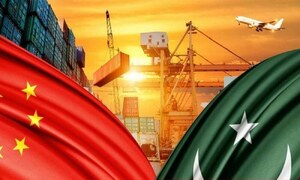


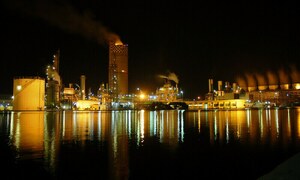
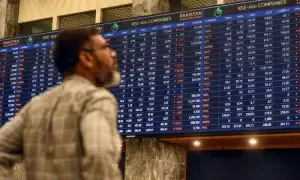
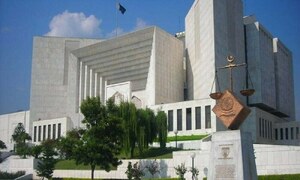





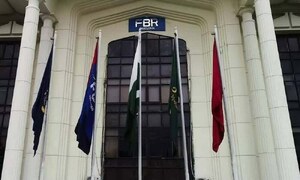
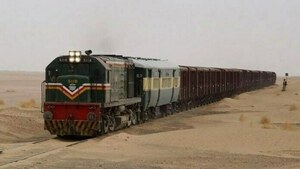
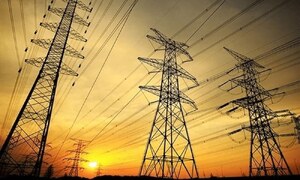

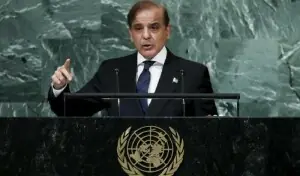

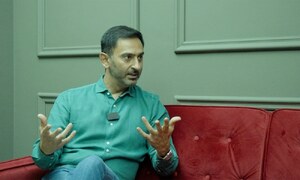
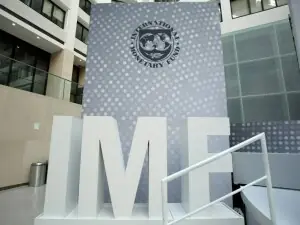
Comments
Comments are closed.